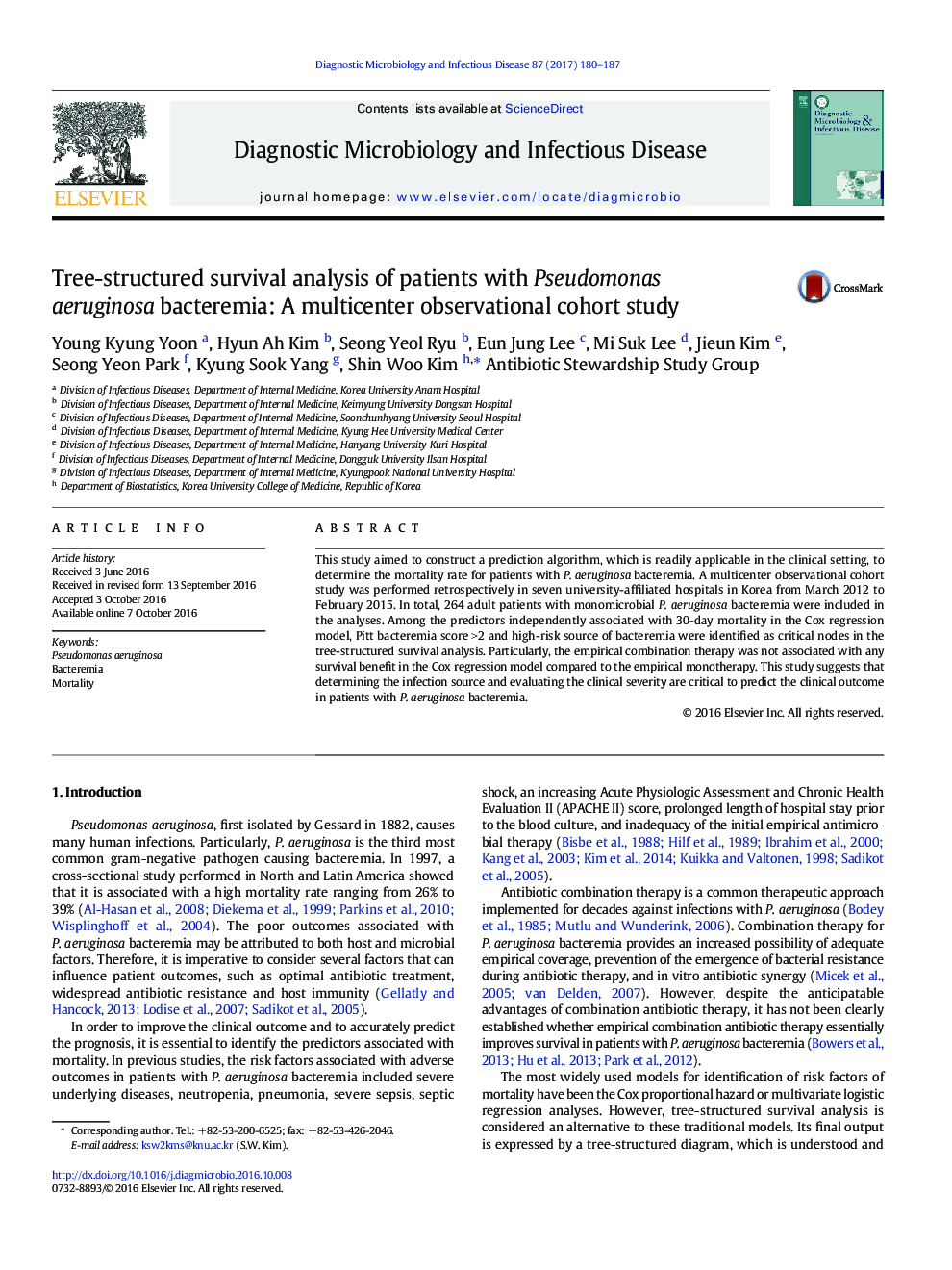| Article ID | Journal | Published Year | Pages | File Type |
|---|---|---|---|---|
| 5665795 | Diagnostic Microbiology and Infectious Disease | 2017 | 8 Pages |
â¢Predictors for mortality were evaluated for patients with P. aeruginosa bacteremia.â¢Combination therapy does not render survival benefit in these patients.â¢Survival tree analysis is useful for evaluating clinical outcomes in patients.
This study aimed to construct a prediction algorithm, which is readily applicable in the clinical setting, to determine the mortality rate for patients with P. aeruginosa bacteremia. A multicenter observational cohort study was performed retrospectively in seven university-affiliated hospitals in Korea from March 2012 to February 2015. In total, 264 adult patients with monomicrobial P. aeruginosa bacteremia were included in the analyses. Among the predictors independently associated with 30-day mortality in the Cox regression model, Pitt bacteremia score >2 and high-risk source of bacteremia were identified as critical nodes in the tree-structured survival analysis. Particularly, the empirical combination therapy was not associated with any survival benefit in the Cox regression model compared to the empirical monotherapy. This study suggests that determining the infection source and evaluating the clinical severity are critical to predict the clinical outcome in patients with P. aeruginosa bacteremia.
